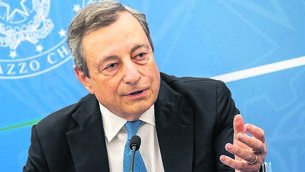G20 must respond to climate change fears
CRITICS often accuse world leaders of being able to focus on no more than one problem at once. So with the economic crisis and the eurozone’s problems in particular dominating recent G20 discussions, what are the chances of progress on climate change this week’s leaders’ summit in Cannes?
The economic crisis has done little to sharpen the pressure for action to tackle climate change. Banking collapses, austerity programmes and social unrest have for the most part knocked climate change from newspaper front-pages. But it is not far-fetched to suggest that the G20’s response to the financial crisis could help the fight against climate change.
















